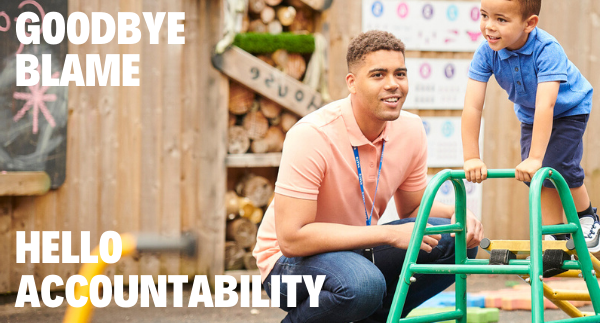
R U Ok Day serves as a powerful reminder to prioritise the wellbeing of those in our lives. It encourages us to be mindful of the mental health of others and underscores the importance of initiating meaningful conversations about emotional wellbeing.
R U Ok Day encapsulates this by stating “a conversation can change a life”, and that “you don’t need to be an expert to reach out.”
In keeping with that approach, we are sharing some easy yet impactful ways that leaders can check in with their educators through something known as a “Pit Stop”.
The purpose of the weekly “Pit Stop” is to provide a space for Educators to share how they are feeling and to offer support and resources as needed.
R U Ok Day is a wonderful reminder of the value in this practice which should be facilitated not only on R U OK Day, but rather, on an ongoing basis.
Let’s learn more about Pit Stops and how they work.
What is a Pit Stop?
A weekly “Pit Stop” between a leader and their Educator can be a casual and relaxed, 1:1 opportunity to check in on the Educator’s overall wellbeing and provide support.
By making the check-in casual and not focused solely on work, Educators are encouraged to be open and honest about their wellbeing, and to feel comfortable seeking support.
What is the value of doing a weekly Pit Stop?
These “Pit Stops” can help to build trust and strengthen the relationship between the Leader and Educator.
By demonstrating a genuine interest in the Educator’s wellbeing, the Leader can help to create a supportive and positive working environment, where Educators feel valued and appreciated.
It shows that the Leader trusts and respects the Educators for their whole authentic self, not just the skills they bring to work.
A significant benefit of implementing weekly “Pit Stops” is their potential to create a ripple effect of positivity within your team. When Leaders prioritise the wellbeing of their Educators, it sets a powerful example for the entire team. It encourages a culture of empathy and support, where everyone is encouraged to look out for one another’s mental health.
Furthermore, these regular check-ins can help identify early signs of stress or burnout in Educators. By catching these issues early, Leaders can take proactive steps to address them, whether it’s through additional support, workload adjustments, or access to resources for mental health and self-care.
This not only benefits the Educators but also contributes to the overall effectiveness and success of service.
How do I carry out a Pit Stop with an Educator?
Pit Stops should last between 5 – 7 mins and should be scheduled at a set time of the week.
Pit Stops should be…
- Informal and relaxed
- Scheduled for a specific time and never cancelled
- Not about work or other Educators
- An opportunity to build relationships and trust
- A time of undivided attention, and 1:1
- An opportunity to follow up on evaluative feedback
Conversation Starters:
- How have you been feeling lately?
- What have you been doing for self-care and relaxation?
- Have you been able to spend quality time with family and friends?
- What are some things you are looking forward to in the coming week?
- Is there anything on your mind that you’d like to talk about or any challenges you’re facing that you’d like support with?
Overall, “Pit Stops” provide a space for Educators to share their wellbeing and receive support. It in turn helps services promote a positive and supportive work environment, improve employee engagement and satisfaction, and ultimately drive better quality outcomes.
So, as you embark on the journey of implementing “Pit Stops” in your leadership approach, remember that it’s not just about individual wellbeing; it’s about nurturing a thriving, interconnected community within your service.
This R U Ok Day, take the first step towards fostering a culture of care and support that can truly change lives and transform your service for the better.

Leave a Reply